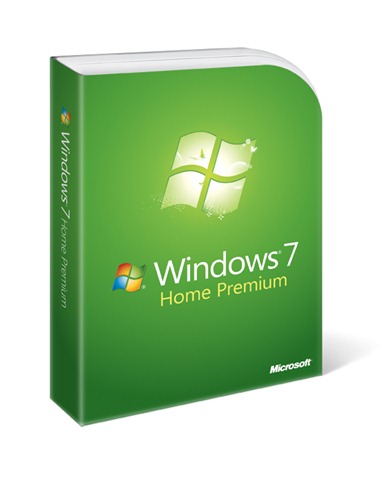Windows 7 to Reduce Energy Consumption
Windows 7 to be more green.
When we think about reducing power consumption of our systems, it's typically through more efficient hardware. Improvements in manufacturing allowing for die shrinks is a clear way to reduce power consumption, but there's also something that software can do.
Microsoft claims that Windows 7 will be better than Windows XP or Windows Vista in power management.
"With Windows 7 we've gone a lot further, focusing on core innovation to enable energy efficiency, when both in use and in idle mode," said Elliot Katz, Windows Client product manager for Microsoft Canada, in an ITBusiness story. "And not only have we focused on the OS, but we continue to be engaged directly with our hardware and software partners to continue to improve the efficiency. The whole world is looking at being more energy efficient, and with Windows 7, we've taken some strong steps on delivering that from an OS perspective."
Windows 7 now manages hibernation and standby modes more reliably and efficiently, thus now users would likely be more inclined to use those features rather than leaving the computer on all the time. Furthermore, new IT management and troubleshooting tools are built into Windows 7 to help improve power management. These tools will also help diagnose devices and applications that are causing power issues.
The upcoming operating system is also smarter in power management when idle. Katz said that Windows 7 is better able to manage power saving at times even between keystrokes, which should not only reduce the electricity bill but also stretch laptop battery times.
"PCs are idle for long amounts of time and short amounts of time, and idle efficiency is critical because that's where you gain a lot of power savings," said Katz. "When it's one of those days where you have lots of meetings and you forget to bring your power supply, these kinds of features really help your battery go a lot further."
Get Tom's Hardware's best news and in-depth reviews, straight to your inbox.
-
aspireonelover I'm sorry to say this, but windows 7 certainly didn't reduce my netbook's power consumption, but instead made my battery life shorter. What does this mean? it means it consumes more power.Reply
Many sites has done many tests to see if this "claim" was true. And after all, it wasn't true.
In order to consume less power, the OS itself will need to use less system resources. That's the keypoint. -
jhansonxi Considering all the hype and hot air it probably has greatly contributed to global warming.Reply -
krazynutz Perhaps this what's being fixed for the RTM version. Remember, what we're using is still beta.Reply -
sdcaliceli ReplyI'm sorry to say this, but windows 7 certainly didn't reduce my netbook's power consumption, but instead made my battery life shorter. What does this mean? it means it consumes more power.
Many sites has done many tests to see if this "claim" was true. And after all, it wasn't true.
In order to consume less power, the OS itself will need to use less system resources. That's the keypoint.
Considering that Win7 isn't finalized, nor are you using the recommended Win7 version on your netbook (i.e. Starter Edition)... -
duckmanx88 aspireoneloverI'm sorry to say this, but windows 7 certainly didn't reduce my netbook's power consumption, but instead made my battery life shorter. What does this mean? it means it consumes more power.Many sites has done many tests to see if this "claim" was true. And after all, it wasn't true.In order to consume less power, the OS itself will need to use less system resources. That's the keypoint.Reply
maybe you should read that the win7 rc is by default the ultimate version and not the netbook version. TH just did an article about it last week. -
aspireonelover duckmanx88maybe you should read that the win7 rc is by default the ultimate version and not the netbook version. TH just did an article about it last week.Yeah, but this article "didn't" specify which version. It simply said Windows 7.Reply
sdcaliceliConsidering that Win7 isn't finalized, nor are you using the recommended Win7 version on your netbook (i.e. Starter Edition)...Starter Edition is the "included" OS in order to keep costs down. Not necessarily for netbooks. (If I read some articles right :P)
Didn't expect to have thumbs down, cause it was my point of view. -
tipoo Good thing. Did anyone else see the battery life vs watt hours for laptops on Anandtech? Macs had double the ammount as Windows Laptops.Reply -
WheelsOfConfusion Does this mean the Windows 7 scheduler will work properly with AMD's Phenom I chips with Cool 'n Quiet enabled, the way Vista didn't?Reply -
TheZander I saw worse battery performance than Vista, XP, Linux and OSX with both the Beta and the RC (using a MBP) but I'm currently testing the RTM. We'll have to see how it does. So far, it doesn't seem too bad, but I need to do some more timed runs.Reply

